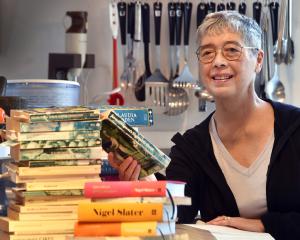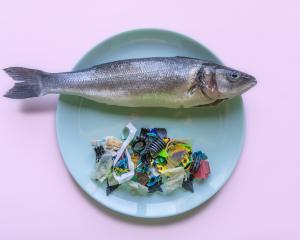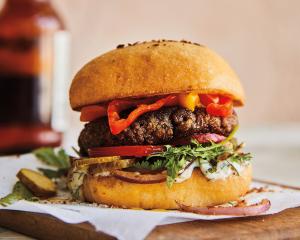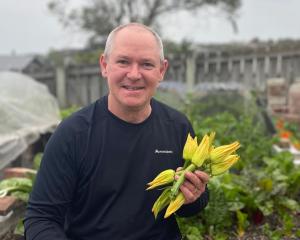‘‘People feel inadequate or frustrated and it can also lead to feelings that contribute to anxiety or depression,’’ she said.
‘‘When you talk to people who have been on this pattern of chronic dieting for a long time, they often oscillate between feeling deprived when they are managing not to eat foods on their forbidden list, and feeling guilty when they do eat them. It becomes a very unhealthy relationship with food, oscillating between deprivation and guilt.’’
Studies show clear evidence of psychological and physical harm from dieting. It predicts weight gain and can lead to weight cycling, or the ‘‘yo-yo effect’’.
‘‘You hear some people saying ‘I’ve lost that same 20 kilos 20 times in so many years,’’ she said.
Weight stability is better for our physical health than weight cycling. Our bodies have such powerful compensatory mechanisms to maintain our weight as it is, so when you diet you are fighting against that. Food should be an enjoyable part of life, she says.
A national survey of women of all body sizes between the ages of 40 and 50, found around 40% were trying to lose weight and another 40% were trying to prevent themselves from gaining more weight.
‘‘It’s ironic that the vast majority of women are trying to control or lose weight when you consider that dieting to lose weight is so unsuccessful,’’ she said.
‘‘In fact, when we followed them up three years later, there was really no difference in weight change in those three groups trying to lose weight, trying to prevent further weight gain or not doing anything.’’
Prof Horwath believes it’s better to break the dieting cycle, take the emphasis off weight loss and form a healthier relationship with food and your body. She espouses a method developed by United States dietitians Evelyn Tribole and Elyse Resch in their 1995 book, Intutitive Eating.
‘‘Taking the focus off body weight and focusing instead on wellbeing is a more holistic approach to adopting healthy behaviours that are enjoyable - enjoyable physical activity, enjoying our food, not feeling deprived and engaging in behaviours that we can really follow for life,’’ she said.
Intuitive eating also encourages people to take good and bad labels off foods. Instead people are encouraged to give themselves permission to eat a wide variety of foods in response to physical cues in the body.
‘‘The way we actually do that is tell people, before actually eating or drinking anything, say to yourself this one sentence: ‘I can have it if I want it, but do I really feel like it?’
‘‘So if you look at that sentence - I can have it if I want it - that’s the aspect of intuitive eating which is giving yourself permission to eat a whole range of foods.
‘‘The second part of the sentence - but do I really feel like it? - is prompting us to pay attention to our body. So how does my body feel? What sensations are present in my body?’’ she said.
‘‘The answer might be ‘I do, I’m physically hungry’, so I eat it and when that’s the case we are encouraged to enjoy the food, savouring it with full awareness. It tends to be a very satisfying experience.
‘‘But we might ask that question and the answer might be, ‘no, not really’. It might be, if we really paused and thought about it, that particular food might not be very satisfying for us right now. Maybe I’m actually thirsty and a drink would be more satisfying.
"Or maybe there’s another food that would be more satisfying. Or it might be something not related to food at all would be satisfying. Maybe I’m feeling a bit bored or a bit lonely, so maybe what I’d actually enjoy would be having a chat with a friend, doing something different.’’
She says that question is really helpful as it makes people more aware of all the times they are eating that don’t have anything to do with being physically hungry - emotions, or the clock saying it’s a certain time.
However, people are sometimes afraid of giving themselves permission to eat a wide variety of foods, she said.
Initially people may eat quite a bit of a food that used to be forbidden but after time they find they’ve eaten enough chocolate chip cookies or whatever, and, if they really pay attention to their bodies, it’s not satisfying after a while.
‘‘With practice people say they enjoy their food more than they did, because prior to that with dieting it’s hard to really enjoy your food when you are feeling guilty and trying to fight against your natural feelings of hunger.’’
People’s physical and psychological wellbeing are also improved with reduction in blood pressure and blood lipids independent of any weight loss.
There are studies showing reductions in anxiety and depression, better coping skills, the experience of more positive emotion, she said.
''Women, because most of the studies have been among women, tend to experience better appreciation of their bodies rather than having a poor body image and tend to binge-eat less often, so there are lots of benefits demonstrated from learning intuitive eating.''
Even though the whole approach takes the focus off weight, some studies show a small decrease in weight, but the majority of interventions show weight stability.
''I would see that as a positive outcome as many of the women who have taken part in the interventions to learn intuitive eating have been dieters whose weight has been on an upwards trajectory. When they learn intuitive eating their weight is stable and that is a real positive compared to what might have been an ongoing weight gain.''
Once a person has a healthy relationship with food and is not going back and forth between guilt and deprivation, they can make fine-tuning adjustments, choosing food to support health and wellbeing without feeling deprived, she said.
Instead of focusing on appearance, people are encouraged to focus on function - What does our body enable us to do?, she said.
''Our body enables us to do so many things and we can focus on appreciating and valuing those and feeling gratitude rather than just what the body looks like and its imperfections.''
As part of intuitive eating, people are encouraged to engage in enjoyable physical activity which might involve a social aspect.
She warns that stigmatising people on the basis of their body weight is damaging, with harmful effects for physical and psychological health.
Recommended reading
Intuitive Eating, by Evelyn Tribole and Elyse Resch, and If Not Dieting, Then What?, by Dr Rick Kausman.











